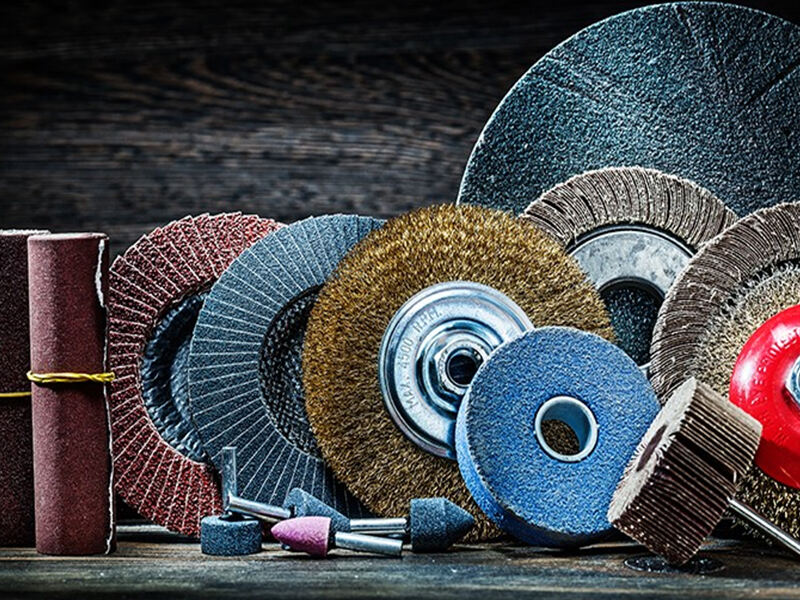निर्माण के क्षेत्र में नई प्रौद्योगिकियाँ आ रही हैं और बढ़ती सustainability योग्य अभ्यासों की आवश्यकता है। निर्माण के लिए अत्यधिक आवश्यक उपकरण, तीव्र उपकरण, सustainability योग्य लक्ष्यों को पूरा करने के लिए महत्वपूर्ण परिवर्तनों का सामना कर रहे हैं। इस पोस्ट में, हम नवाचार और व्यवसायिक व्यावहारिकता के संबंध में सustainability योग्य निर्माण तीव्र उपकरणों के भविष्य का पूर्वानुमान करने पर केंद्रित होंगे।
पर्यावरण पर दुष्प्रभाव को कम करने के उद्देश्य से, उद्योगों को पर्यावरण-अनुकूल कटौती उपकरणों की जरूरत है। फसद हुए कटौती अक्सर अपशिष्ट और प्रदूषण का कारण बनते हैं, जिससे निर्माताओं और इंजीनियरों को एक आर्थिक, कुशल और धारणीय विकल्प विकसित करने का चुनौती मिलता है। कटौती उपकरणों का भविष्य संभवतः पुनः उपयोग की गई सामग्रियों, जैव विघटन योग्य खंड और कम ऊर्जा-खपत प्रक्रियाओं का अधिक उपयोग शामिल करेगा। ये नवाचार न केवल पर्यावरणीय मुद्दों को हल करेंगे, बल्कि निर्माण उत्पादकता को भी बढ़ाएंगे।
विमान औद्योगिक क्षेत्र, जो पहले अस्पष्ट रूप से बढ़ सकता था, उन्नत प्रौद्योगिकी और कुशल मजदूरी के कारण संरचित और बढ़ी हुई वृद्धि का सामना कर रहा है। नए कम्पाउंड का विकास आने वाले वर्षों में पॉलीसिलिकॉन बाजार की वृद्धि को बढ़ाने के लिए जिम्मेदार होने का अनुमान है। खुराकी प्रक्रियाओं से उत्पन्न अपशिष्ट अब नए स्थायी और पर्यावरण-अनुकूल केरेमिक खुराकियों के कारण कम किए जा सकते हैं। नैनोप्रौद्योगिकी का परिचय अधिक सटीक और लंबे समय तक चलने वाले खुराकी उपकरणों की अनुमति दे रहा है और एक अधिक बनाए रखने योग्य दृष्टिकोण को सहायता दे रहा है।
खराबी उपकरणों में स्वचालन और नियंत्रण के कारण खराबी उपकरणों के अनुप्रयोग और डिज़ाइन से संबंधित पद्धतियों में परिवर्तन आया है। इंडस्ट्री 4.0 युग की प्रवेश के माध्यम से, निर्माताओं को डेटा विश्लेषण, मशीन लर्निंग और स्वचालन का उपयोग अपने प्रक्रियाओं को बेहतर ढंग से अनुकूलित करने के लिए करने की सुविधा मिलती है। यह संसाधनों के प्रबंधन में सुधार करता है और सटीक खराबी उपकरणों के विकास को सुगम बनाता है। इस प्रकार, कंपनियों को अपनी उत्पादकता और प्रदर्शन में सुधार करने के साथ-साथ अपशिष्ट और ऊर्जा खपत को प्रबंधित करने में सक्षम बनाया जाता है।
शिक्षा और प्रशिक्षण का सustainability बनाए रखने वाले उत्पादन पर प्रभाव बहुत बड़ा है। नई कौशलों की आगे बढ़ने के अवसरों को नई प्रौद्योगिकियों और सामग्रियों के उदय के साथ चलना चाहिए। कर्मचारियों को sustainable abrasive tools के ज्ञान और अनुभव से लाभ होगा ताकि वे कंपनी के sustainability objectives को प्राप्त करने के लिए काम करें। इस organizational culture में परिवर्तन से sustainable abrasive tools में अधिक निवेश होगा।
सारांश में, विकास और पर्यावरण के प्रति efficient responsibility सustainability बनाए रखने वाले manufacturing के संबंध में abrasive tools के लिए शुभ भविष्य सुझाता है। जैसे-जैसे उद्योग sustainability पर ध्यान केंद्रित करते हैं और नए अभ्यास निर्माताओं द्वारा अपनाए जाते हैं, यह अधिक उत्पादक हो जाएगा। abrasive tools का भविष्य का विकास manufacturing की प्रक्रियाओं को सुधारने के अलावा sustainable development की रचना भी सुनिश्चित करेगा।
औद्योगिक रुझान: परिवेश सहकारी नीतियां सिने अमलबद्ध हाथ के उपकरणों और बिजली संचालित उपकरणों के क्षेत्र में अपनाई गई हैं, जो चादरीय और डिजिटल निर्माण के लिए है। नए सustainable विधियों में प्रतिस्पर्धी बनने को मजबूत करने के लिए रुझानों का पता लगाना आवश्यक है, क्योंकि उद्योग के परिवर्तन के साथ नए नियमों की संभावना है।



